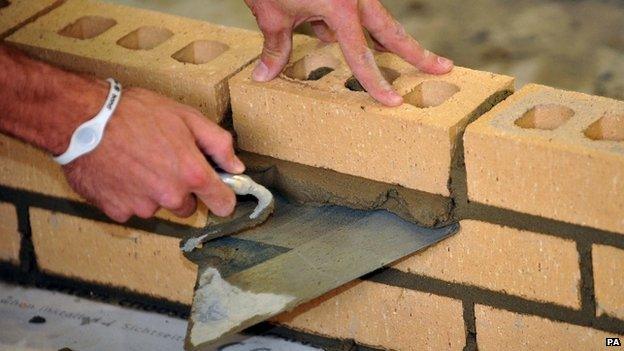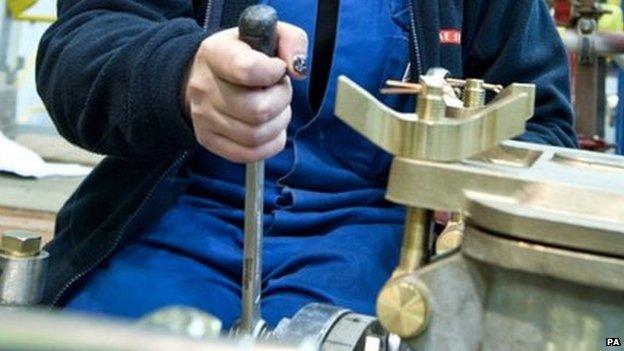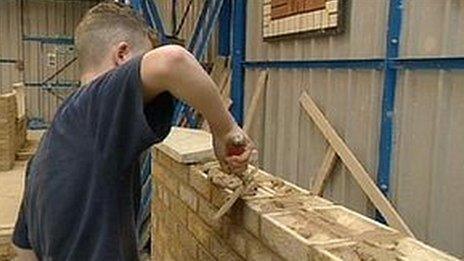Apprenticeship system 'failing to help Britain's young'
- Published

The government plans to create three million new apprenticeships
The apprenticeship system is "failing" and needs reform to address youth unemployment, a new report says.
The study, commissioned by the Local Government Association, found 42% of all apprenticeships created in the last five years went to people aged over 25.
It said current policy enabled businesses to train established workers rather than unemployed young people.
The government said the number of young people not in work, education or training was at its lowest in a decade.
It has pledged to create a further three million apprenticeships before the end of Parliament in 2020.
'Failing to deliver'
The report, by the Institute for Public Policy Research (IPPR) and the Local Government Association (LGA), found 67% of intermediate-skilled apprentices were already employed by their company when they were given their apprenticeships.
Detailed figures for the year 2013-14 showed under-19s applied for 57% of the advertised apprenticeships but were given 27% of them, whereas over-25s made up 7% of applications but filled 37% of the vacancies.
The study's authors said the government needed to undertake "significant reform" of the apprenticeship system, which they said was "failing to get to grips with stubbornly high levels of youth unemployment".
Luke Raikes, research fellow at IPPR North, said: "A high quality apprenticeship system could be used to combat youth unemployment and drive higher productivity, but the system we currently have is failing to deliver.
"There is a big gap between the function apprenticeships should have in our economy and how they're being used in practice: the majority of apprenticeships are being used to train older people, and those who are already employed at their company, instead of taking on young people out of work."

The report said current apprenticeships policy was enabling companies to train their older workforce
Just over a third of apprenticeships created in the last five years were at advanced or higher level, with the majority of places being at the intermediate level.
And 24% of 16-18 year olds, and 15% of all intermediate apprentices were not being paid the minimum wage, the report said.
Pay was particularly low in hairdressing and childcare, where 42% and 26% of apprentices were paid less than the minimum wage.
The report said local apprenticeship hubs should be created and given full control of the apprenticeship grant from central government.
This would enable employers to tailor the apprenticeship offer to better meet the needs of local employers and the local economy, it said.
Powers and budgets for apprenticeships should also be further devolved to local authorities.
Cllr Peter Box, economy spokesman for the LGA, said: "A good apprenticeship can give young people the experience, skills and understanding that can often lead straight into a full-time job.
"At present, too many new apprenticeships are low skilled and taken by older people already in work with their employer."
- Published28 April 2015

- Published9 March 2015

- Published20 February 2015
